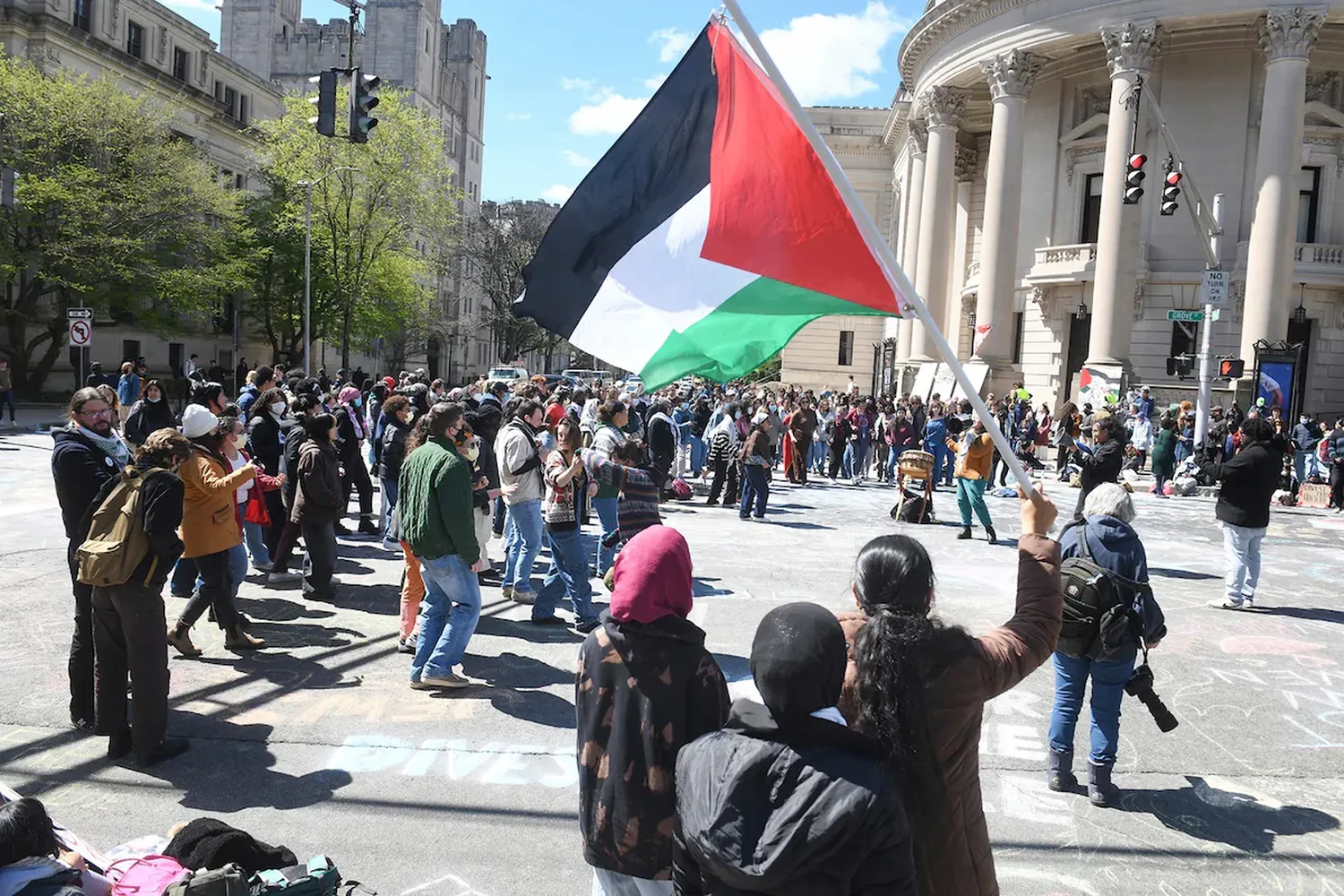Campus Tensions
Dozens Arrested at Yale and NYU Amid Pro-Palestinian Protests
In a wave of escalating campus activism, dozens of students were arrested at Yale University and New York University as pro-Palestinian protests intensified across the United States. The demonstrations, which have spread to several other universities, are part of a broader response to the ongoing conflict between Israel and Hamas, with students calling for their institutions to divest from companies connected to Israel and to condemn the violence in Gaza.
At Yale University in New Haven, Connecticut, the situation reached a critical juncture when law enforcement officials arrested approximately 47 protesters on Monday. The demonstrators, who had been camping at Beinecke Plaza for the past three nights, were advocating for the university to divest from military weapons manufacturers. The Yale Police Department, which carried out the arrests, cited trespassing as the reason for the apprehensions. The detained students were later released with promises to appear in court.
The protests at Yale had been building over the past week, with more than 250 people participating at one point, according to the Yale Daily News. Despite attempts by university administrators to negotiate with the protesters, offering meetings with trustees and warnings of potential arrests, the demonstrators remained resolute in their demands. The university emphasized that the decision to arrest was made with the safety and security of the entire Yale community in mind.
Meanwhile, in New York City, a similar scene unfolded at New York University's Stern School of Business. Hundreds of protesters, primarily students, rallied in support of Palestinians, with tensions running high as the crowd chanted and observed moments of silence for those who have died in Gaza. The demonstration, which began on Monday morning, saw the establishment of an encampment at Gould Plaza. NYU officials reported a breach in the barriers and expressed concern over disorderly and disruptive behavior that jeopardized community safety.
As the day progressed, the university requested assistance from the New York Police Department to enforce trespassing violations. The NYPD responded, and social media videos captured chaotic scenes as officers dismantled tents and engaged in physical altercations with protesters. The exact number of arrests and citations was not immediately available, but the NYPD announced that students were being arrested for disorderly conduct and obstructing traffic.
The protests at NYU were organized by the NYU Palestine Solidarity Coalition, a newly formed on-campus group that includes students and faculty from various pro-Palestinian organizations. The coalition's demands include NYU's divestment from weapons manufacturers and the severing of ties with Tel Aviv University, including the closure of NYU's Tel Aviv campus.
The recent arrests at Yale and NYU follow a series of similar incidents at Columbia University, where over 100 students were arrested last week for setting up a tent encampment on campus. The protests at Columbia led to the cancellation of in-person classes and a faculty walkout in solidarity with the arrested students.
The spread of pro-Palestinian encampments and demonstrations to other universities, including the University of California, Berkeley, and the University of North Carolina at Chapel Hill, signals a growing movement among students to address the Israel-Gaza conflict. Students at institutions such as Brown, Princeton, and Northwestern universities have also staged their own protests, calling for a ceasefire in Gaza and divestment from companies with ties to Israel.
The protests have not been without controversy, as some Jewish students have expressed fear for their safety and concerns over antisemitic rhetoric. University administrations across the country are grappling with the challenge of balancing the right to peaceful protest with the need to maintain campus safety and uphold codes of conduct.
As the situation continues to evolve, university officials, students, and community members are engaged in a complex dialogue about free speech, activism, and the role of higher education institutions in addressing global conflicts. With the academic year drawing to a close and commencement ceremonies on the horizon, the impact of these protests on campus life and university policies remains to be seen.

